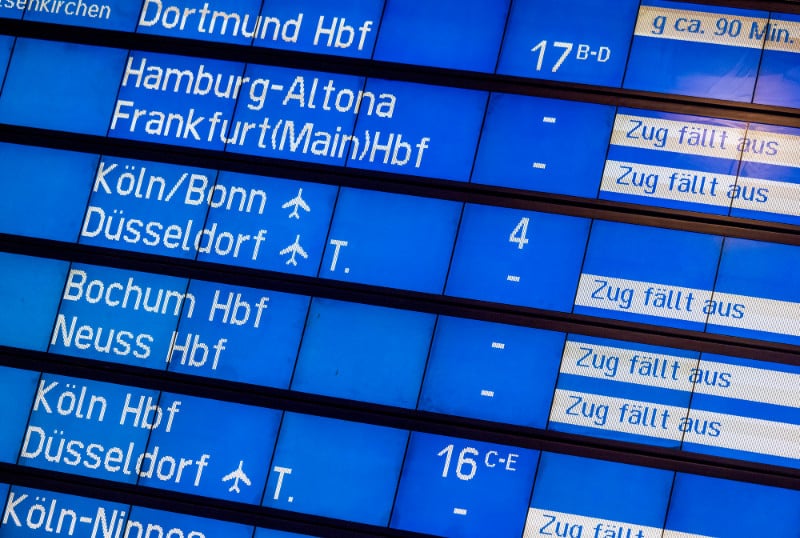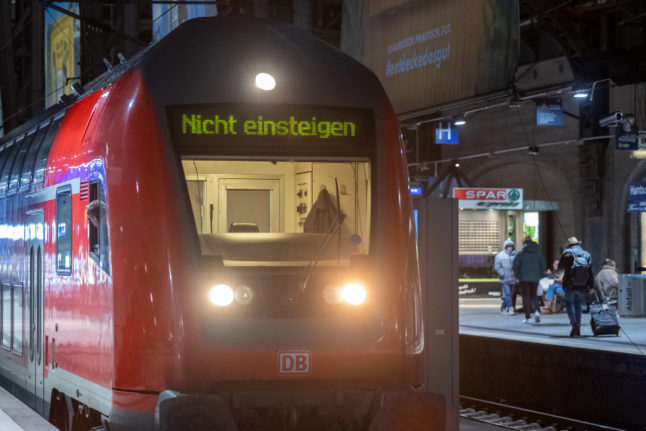Transport Minister Volker Wissing has slammed as “destructive” the six-day industrial action that heaps further pressure on supply chains that are already facing disruption because of attacks by Yemen’s Huthi rebels on shipping via the Red Sea.
The prolonged action “is a strike against the German economy,” said Deutsche Bahn spokeswoman Anja Broeker, noting that cargo traffic handled by the service include supplies for power plants, refineries”.
“DB Cargo will do everything to secure the supply chain, but it’s clear that there will be some impact,” she added.
The walkout called by the GDL union runs from 2 am Wednesday through to 6 pm on Monday for passenger traffic while the strike for freight trains began earlier on Tuesday.
READ ALSO: How train travellers in Germany will be affected by the latest six-day strike
Not only long-distance trains but also suburban services (the S-Bahn), many of which like Berlin’s are operated by Deutsche Bahn, are affected, just over a week after the last round of walkouts between January 10 and 12.
The fourth strike since November left passengers scrambling to rebook or cancel their plans, and sparked warnings of huge costs to the state and industry at a time when the German economy was already ailing.
Deutsche Bahn estimated each strike day to cost “a low two-digit million figure”, but industry experts warned the impact on the economy would be far bigger.

‘Unreasonable’
Michael Groemling of Cologne’s Institute for Economic Research said nationwide train stoppages can cost up to €100 million a day to the economy, but warned that the impact “may not rise linearly in a strike that lasts several days, but partially multiplies”.
Given the disruptions with sea freight over the Huthi attacks, as well as issues on road transport, “rough estimates suggest that in extreme cases, this strike can cost up to a billion euros”, he said.
Wissing slammed the GDL union for refusing to negotiate during the walkout.
“I find that it is unreasonable vis-a-vis train travellers that the trains are standing there blocked, while one’s not at the same time sitting at the negotiations table,” said the transport minister.
But the union said it had rejected the Deutsche Bahn’s “third and allegedly improved offer” because bosses had shown “no sign of a willingness to reach an agreement.
The GDL is seeking higher salaries to compensate for inflation, as well as a reduced working week from 38 to 35 hours with no loss in wages, arguing that it needed to make train driver jobs “more attractive” to young people.
But Deutsche Bahn blasted the latest round of industrial action, saying it had offered pay rises of up to 13 percent and a one-off inflation bonus, as well as the chance to reduce the working week by one hour from 2026.
Deutsche Bahn last year also clashed with the EVG rail union, which represents around 180,000 non-driver rail personnel, reaching an agreement in late August.
The latest walkout breaks the previous record of a May 2015 action, also called by GDL, that lasted around five days.



 Please whitelist us to continue reading.
Please whitelist us to continue reading.
Member comments